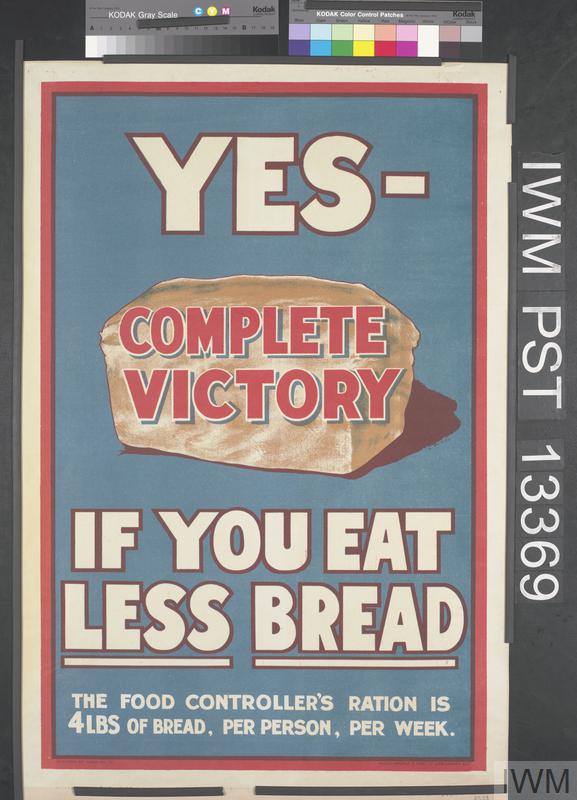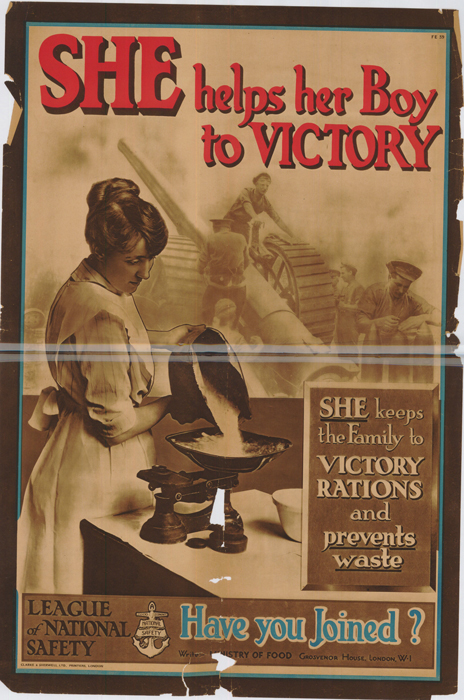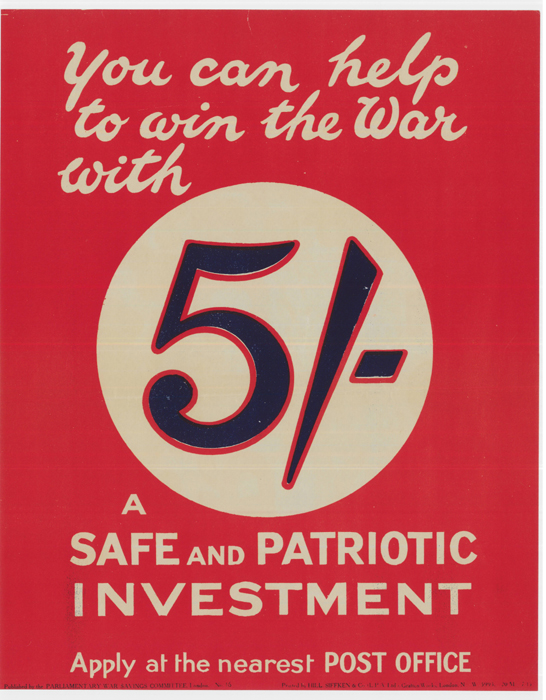The Homefront Campaign
Realizing that they could not shoot a canon out of a canoe, Britain’s propaganda producers devoted a division to people on the homefront. These works contained messages that would support the military such as not cheating the rations system and not wasting resources so there would be more for soldiers. There was also encouragement to buy military bonds that would give the military more funds to support themselves overseas. Propaganda fed into ideas of national pride and British superiority, urging patriotic Britons to perform their civic duty and help complete victory, while also trying to win over contributions from neutral citizens.

This poster reminds its audience of their allowed bread rations and that staying within it would help finish winning the war, implying that British victory was inevitable. It serves as a call to action for people to not cheat the system, and is composed of the Union Jack colours. This poster tells its viewers that eating less bread would help finish off winning the war, implying that British victory was inevitable. It serves as a call to action reminding British citizens to do their part in the war effort, as well as how much bread they were allowed, and is composed of the Union Jack colours to invoke a sense of national pride.

Created by the National League of Safety, this poster focuses on the role of women at home in the war. It features a woman cooking in her kitchen with men in the background operating artillery. It commends the woman who is adhering to rations and not wasting food, maintaining that she is who will help end the war and aid her boys to victory overseas.

This publication by the Parliamentary War Savings Committee tells British people on the Homefront that they can make their contribution to winning the war for five shillings. It includes all the Union Jack colours, but puts a heavy emphasis on red and white from St George’s cross, which had been a symbol used by English soldiers in the Middle Ages. The illustration is trying to sell war bonds to people to improve military funding to win the war, and does so by framing the investment as safe and patriotic, giving investors a sense of security and national pride in contributing to a triumphant British win.